Inspiring Shabari Seva Samitee
Western | Maharashtra


Looking at a 2.5 year old toddler, weighing a bare minimum of 2.5kg, is enough to break a heart, while praying that he somehow makes it, is futile, as we know what would follow! It doesn’t come as a surprise, but a wretched inevitability that the little one did not make it through the night.
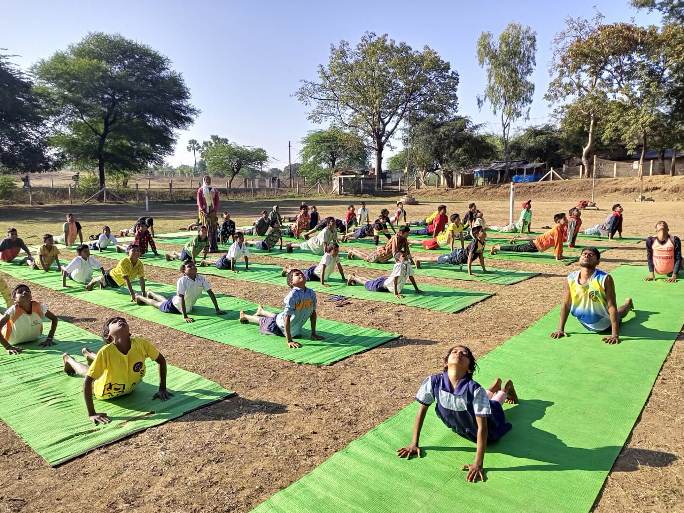
Malnutrition claims around 70-80 young lives every year in Maharashtra’s KarjatTaluka comprises mostly of tribal population. The severity of this situation perturbed Rashtriya Swayamsevak Sangh’s volunteer Mr. PramodKarandikar, and he made a resolve to work and improve this distressing situation. Having led the Kalyan Ashram’s activities for years, Mr. Pramod Karandikar was well informed, and could empathize with the problems of the tribal community. To work independently on the problem of malnutrition, he commenced the activities of ‘Shabari Seva Samitee’ in 2003. With the help of his wife Mrs. Ranjana Karandikar, he identified around 700 undernourished children belonging to this tribal community, under the age group of 2 months to 5 years. The Samiti looked after the hygiene, nourishment and routine health checkup, of these kids. Packets of well-balanced food comprising of nutritious items like groundnuts, coconut oil, ghee and lentils were distributed free of cost. To curb the problem at its induction antenatal nourishment of pregnant females was also taken care of. The program also included health training of guardians and teachers.
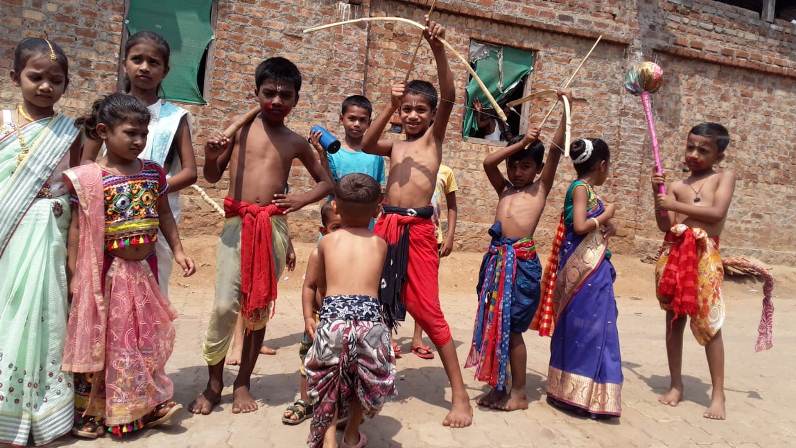
The results were spell bounding,
the number of children falling prey to malnutrition was seen to have gone down
to 3-4, in 2008, as compared to 70-80, in 2002, Which implied that almost
20,000 lives had been saved during this period.
Shabri
Seva Samiti is now active in tribal areas of 8 districts including - Raigad,
Thane, Palghar, Nandurbar,Dhule,Jalgaon,Sendhva,and Dadra-Nagar Haveli, for the
upliftment of more than 1600 villages with the help of 47 volunteers.
Fighting with the hurdles,the members of the tribal community strive day and nigh,t to bring food to the table but fail to identify the power and utility of education. Realizing this, a multitude of education institutes, including private and government schools, were roped in to reduce the illiteracy that ran rampant in these areas. An innovative activity called “PUSTAK- HANDI “wasinitiated wherein on the occasion of ‘Janmashtami’ books of cultural importance like Ramayana and Mahabharat were distributed among the children, with an aim to increase their moral intellect.
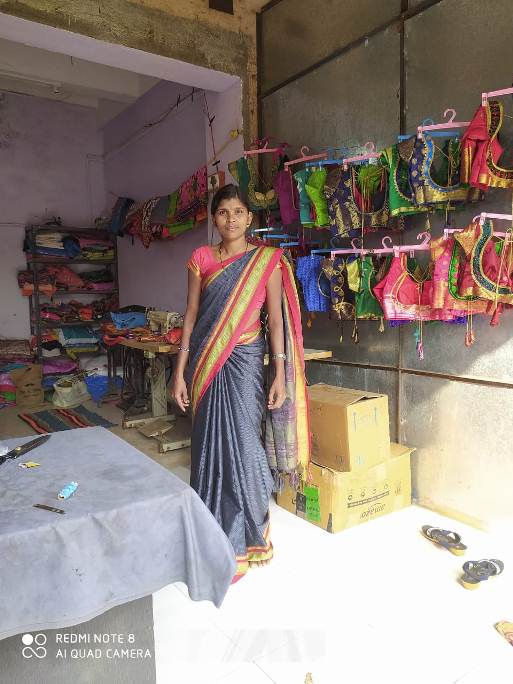
A hostel has been built which houses 35 students in the Kashele village of Karjattaluka. Health and hygiene workshops have been conducted for adolescent females. To shed light upon the importance of education, 10 libraries providing free access to myriad books have been opened for the benefit of these communities.
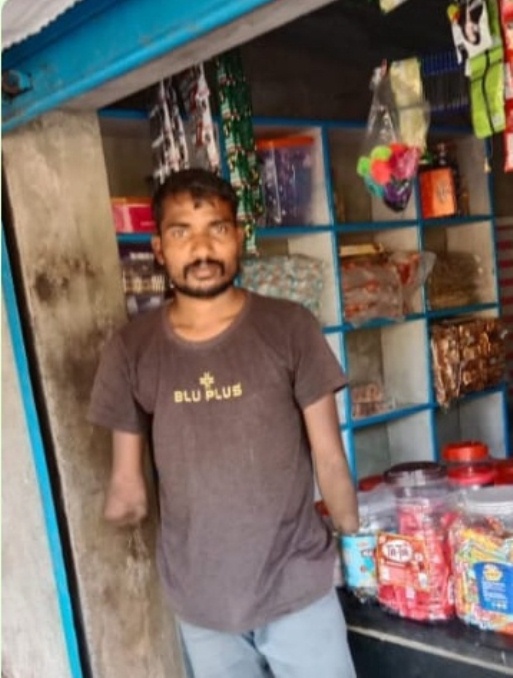
Mrs. Ranjana who has been working with “Vanvasi Kalyan Ashram as the “AkhilBhartiyasahamahilaPramukh”proudly recalls an incident, where a lady with bilateral lower limb disability, learnt to operate a tailoring machine, under the guidance of the Samitee, and went on to getting happily married, and working side by side her husband and shared his financial responsibilities. In another success story Mrs. Ranjana talks about Kavita from Shurvani village, who after her training not only started a boutique of her own, but also earned and transferred a sum of Rs. 35,000 to her husband’s bank account to aid his Taxi business. Anjali has been a similar case. After the unfortunate demise of her husband, she came for training.6 years down the line, she is successfully running her own boutique,and also working as a trainer at the SamitiCenter,helping other women to stand up on their own feet, as well. As of today, 10 tailoring Centers have trained around 750 women, and helped another 450 to become financially independent.
Even a small support for the especially abled people is very helpful to enable them to lead their life, with self-respect. Mr. Suresh Padvi has been able to support his family despite his gross physical disabilities, by running a grocery shop that the Samitihas helped him set up four years back. Shabari Seva Samiti has so far proved to be a boon to around 450 blind and handicapped people.
It is common for agriculture to be the sole source of earning in tribal hilly regions, but the lack of water resources proves to be a hurdle in this occupation. Volunteers of the Samiti have come up with many strategic and sustainable solutions, to tackle this problem. They have brought 950 acres of land under irrigation, in the areas of Satpuda and Palghar. They have constructed 32 open wells, many bore wells, water tanks and cement dams, with the help of villagers to ease out water scarcity situation. Similarly in order to promote plantation,around 20,000 mango trees and 50,000 teak wood trees have been planted in the regions of Dhadgaon ,Javhahaar , Akkalkuva . This has helped boost local employment. The Samiti has helped more than 5000 families to become self-sufficient through agriculture, irrigation and horticulture.
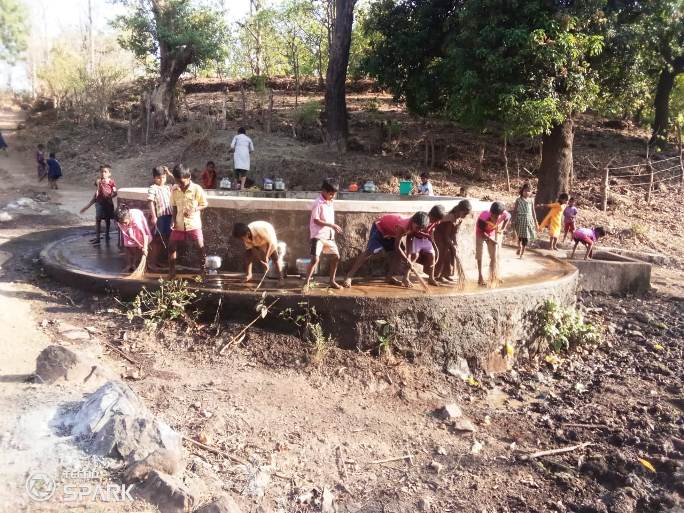
Living
for oneself is easy, but it is an uphill task to live for others. It is indeed inspiring to see the tremendous
work that Shabari Seva Samiti has been doing in bringing marginalized tribal
community into mainstream by various development programs, and giving them the
opportunities, they rightfully deserve.
Contact: Mr. Pramod Karandikar
Mobile No. : 91-9920516405
Writer
Madhuri Afale